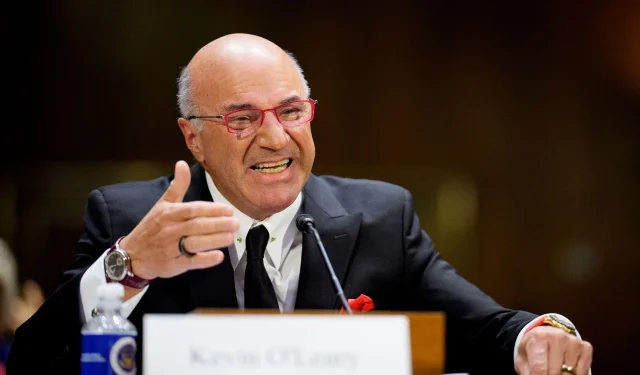Kevin O’Leary, renowned entrepreneur and investor from Shark Tank, recently addressed significant concerns regarding the dangers faced by small businesses when Chinese manufacturers replicate their products. This was highlighted during O’Leary’s discussion with Beth Benakie, the CEO of Busy Baby, on The Megyn Kelly Show.
In an Instagram clip shared on April 22, 2025, O’Leary underscored a troubling trend in the marketplace:
“As soon as it gets to 5 million in sales domestically, the same factories that are making it there knock it off.”He added, “The crazy thing, Megyn, is Chinese companies use the American legal system to sue American companies after they’ve knocked them off. Why is that okay?”
Understanding the Risks of Product Replication
O’Leary elaborated that many U.S. companies encounter this challenge after opting to manufacture in China. Once a product gains traction in the domestic market, original manufacturers often find themselves competing against virtually identical items produced and sold at significantly lower prices by the same factories.
“The same factories that are making it there knock it off and sell it at a 40% discount because they never have to recoup the R&D that the company put into making the product in the first place,”he mentioned.
According to O’Leary, this occurrence can ultimately lead to the original companies being “wiped out in a different way.”The issue transcends mere duplication—he remarked that Chinese firms frequently initiate legal actions against U.S. companies whose products they have copied.
“They just totally ignore the IP and they can’t go back and litigate,”he explained.
This situation complicates the landscape for U.S. businesses, particularly when they are confronted by lawsuits within a legal framework that is intended to protect their rights.
Challenges in Intellectual Property Enforcement
O’Leary pointed to a deeper systemic problem in the enforcement of global intellectual property regulations. He expressed his views on the matter:
“They don’t play by the rules of the World Trade Organization, and they haven’t since 2000. They just don’t give a sh*t.”
He further noted that Chinese companies often operate within U.S. capital markets and global trade systems without adhering to the established rules, creating a disparity that undermines fair competition.
O’Leary indicated that this practice has persisted for years, with many American businesses witnessing their innovations appropriated without the possibility of legal recourse. However, he observed a recent shift in the U.S. government’s approach to this issue.
“This administration has decided there are consequences to stealing IP and not playing by the rules and not giving access to markets,”he commented.
The Economic Implications of Intellectual Property Theft
O’Leary characterized the current situation as approaching a critical juncture, framing it as an “economic war”against China. He illustrated the broader competitive landscape between the two nations:
“China can’t afford not to have access to the world’s largest economy… Otherwise everybody, you know, unemployed there.”
Reflecting on his personal experiences, O’Leary recounted his own business dealings in China, sharing that he too has suffered significant challenges.
“I do business in China and I’ve been royally screwed. And I’m tired of it. I’m just sick of it,”he lamented.
For those interested in ongoing discussions about entrepreneurship and business practices, Shark Tank airs every Friday at 8 PM ET on ABC.


